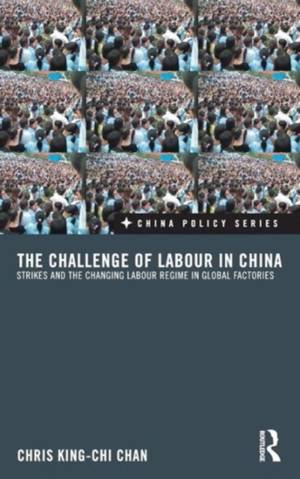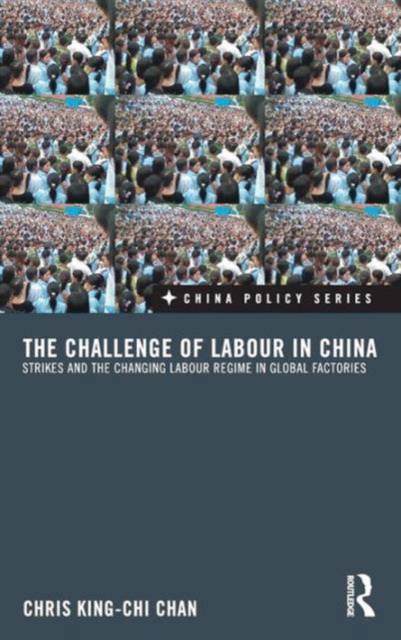
- Afhalen na 1 uur in een winkel met voorraad
- Gratis thuislevering in België vanaf € 30
- Ruim aanbod met 7 miljoen producten
- Afhalen na 1 uur in een winkel met voorraad
- Gratis thuislevering in België vanaf € 30
- Ruim aanbod met 7 miljoen producten
The Challenge of Labour in China
Strikes and the Changing Labour Regime in Global Factories
Chris King-Chi ChanOmschrijving
China's economic success has been founded partly on relatively cheap labour, especially in the export industries. In recent years, however, there has been growing concern about wages and labour standards in China. This book examines how wages are bargained, fought over and determined in China, by exploring how the pattern of labour conflict has changed over time since the 1970s. It focuses in particular on the city of Shenzhen where labour conflict and workers' protests have been especially prevalent. This book includes a detailed account of the transformation of labour relations and labour policy in China more broadly during 2004 to 2009, a period when there have been significant changes in the labour market, labour regulation and labour relations. The author argues that these recent developments have brought to the fore the class basis of workers' protest in China and have thoroughly undermined the post-Marxist analysis of identity politics. The book makes an invaluable contribution to studies on industry and labour, as well as Chinese studies.
Specificaties
Betrokkenen
- Auteur(s):
- Uitgeverij:
Inhoud
- Aantal bladzijden:
- 216
- Taal:
- Engels
- Reeks:
- Reeksnummer:
- nr. 16
Eigenschappen
- Productcode (EAN):
- 9780415557030
- Verschijningsdatum:
- 18/08/2010
- Uitvoering:
- Hardcover
- Formaat:
- Genaaid
- Afmetingen:
- 155 mm x 234 mm
- Gewicht:
- 453 g

Alleen bij Standaard Boekhandel
Beoordelingen
We publiceren alleen reviews die voldoen aan de voorwaarden voor reviews. Bekijk onze voorwaarden voor reviews.











